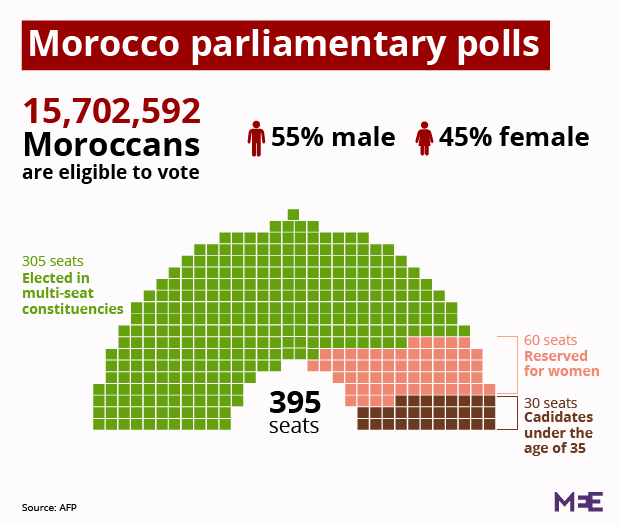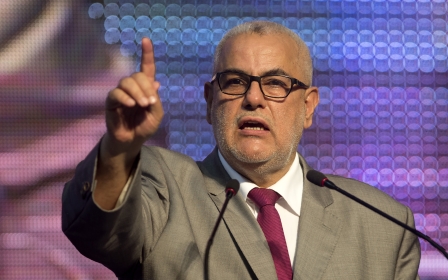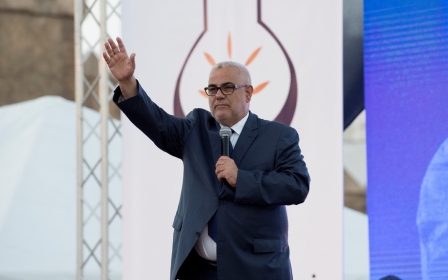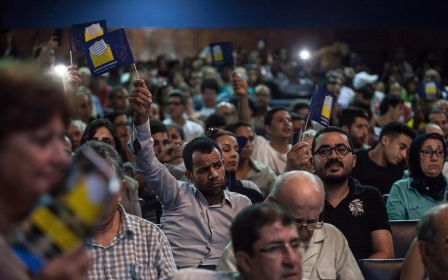Morocco's ruling PJD wins parliamentary elections
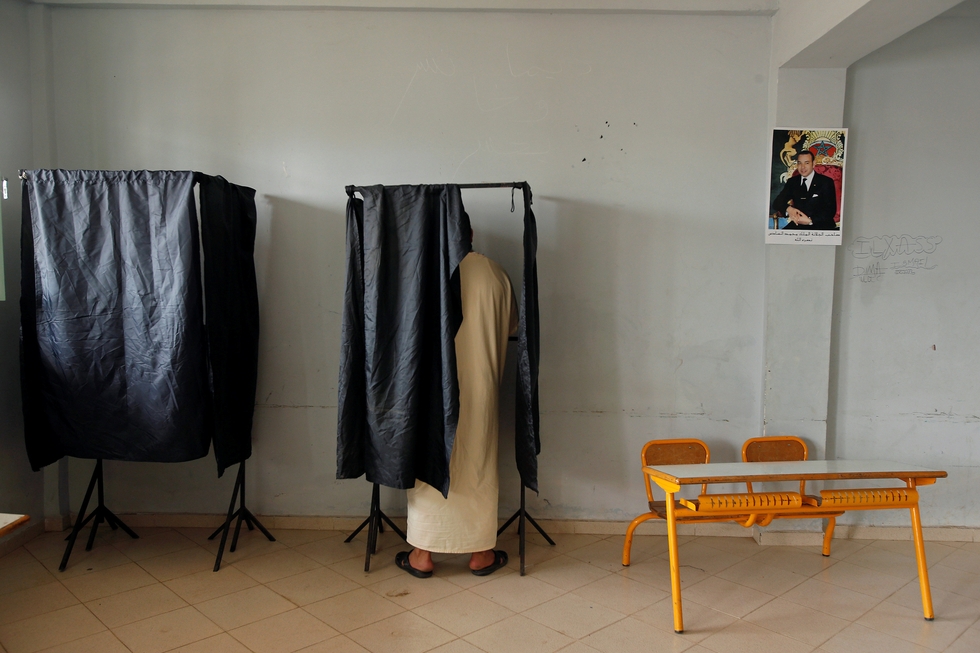
The Islamist Justice and Development Party, which has headed Morocco's coalition government for the past five years, came top in parliamentary polls on Friday, according to final results released by the Interior Ministry on Saturday.
The Islamists took 125 seats, while the liberal opposition Authenticity and Modernity Party took 102. Smaller parties took the rest of Morocco’s 395-seat parliament.
According to the terms of the new constitution, passed in 2011 after Arab Spring uprisings, the winning party will lead the coalition government. The king appoints a prime minister from the biggest party in parliament after election results are announced.
The last legislative elections were held in November 2011 when the Justice and Development party (PJD) also came first.
Under Morocco's system no party can win an outright majority in the 395-seat parliament and the winner must form a coalition government.
Although King Mohammed VI remains decision-maker on strategic issues, the elections have decisive consequences on Moroccan politics.
For all the parties, “representation within parliament, ministerial positions and integration of the elites in institutions are at stake," said Omar Brouksy, professor of constitutional and public law at Settat University and author of Mohammed VI: Behind The Masks.
The three main parties in the Moroccan political landscape - the PJD (an Islamist movement), the Authenticity and Modernity Party (PAM), which is close to the monarchy, and the Istiqlal or Independence Party (nationalists) - were the only ones to run in all 92 districts of the country.
After that are the Socialist Union of Popular Forces (USFP), the Party of Progress and Socialism (Communists) and the Democratic Left Federation (FDG). Then there are the National Rally of Independents (RNI), the People's Movement (MPE), the Constitutional Union (UC) and those not affiliated to any political party.
Among the less-represented political parties, with fewer than 70 candidates standing for election, are the Front of Democratic Forces (FFD), the Democratic and Social Movement (MDS), the Al Ahd and Renewal alliance, the New Democratic Party and the Reform and Development Party.
Moroccan PM and PJD leader Abdelilah Benkirane said the people have renewed their trust in his party's policies.
"I have been running a successful government for five years," he said after casting his vote in Rabat on Friday. "Moroccans were watching my work. We ran a good campaign, and now we will wait for the results, which naturally will lead to our victory."
New MEE newsletter: Jerusalem Dispatch
Sign up to get the latest insights and analysis on Israel-Palestine, alongside Turkey Unpacked and other MEE newsletters
Middle East Eye delivers independent and unrivalled coverage and analysis of the Middle East, North Africa and beyond. To learn more about republishing this content and the associated fees, please fill out this form. More about MEE can be found here.


